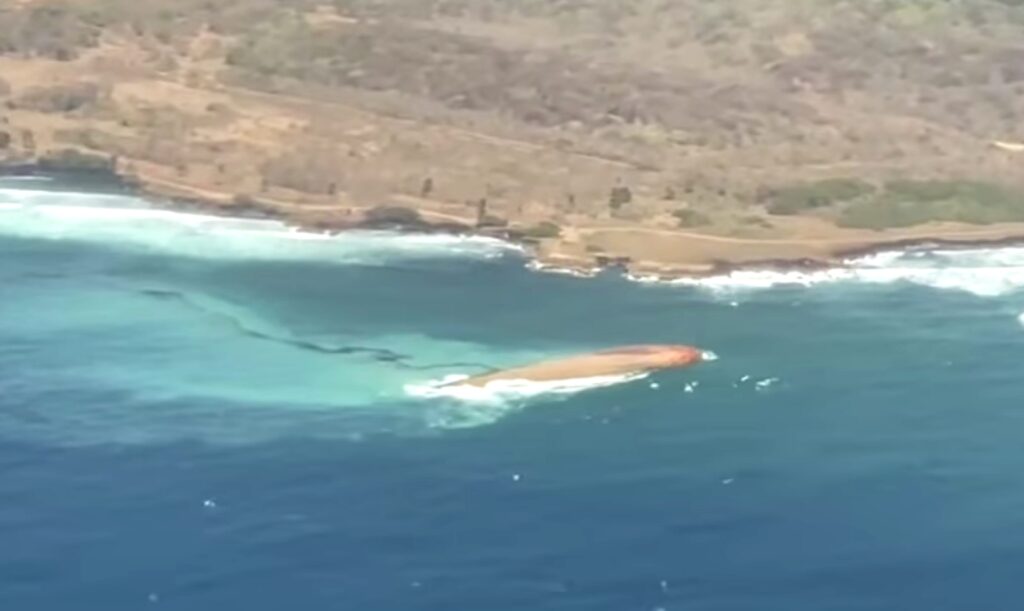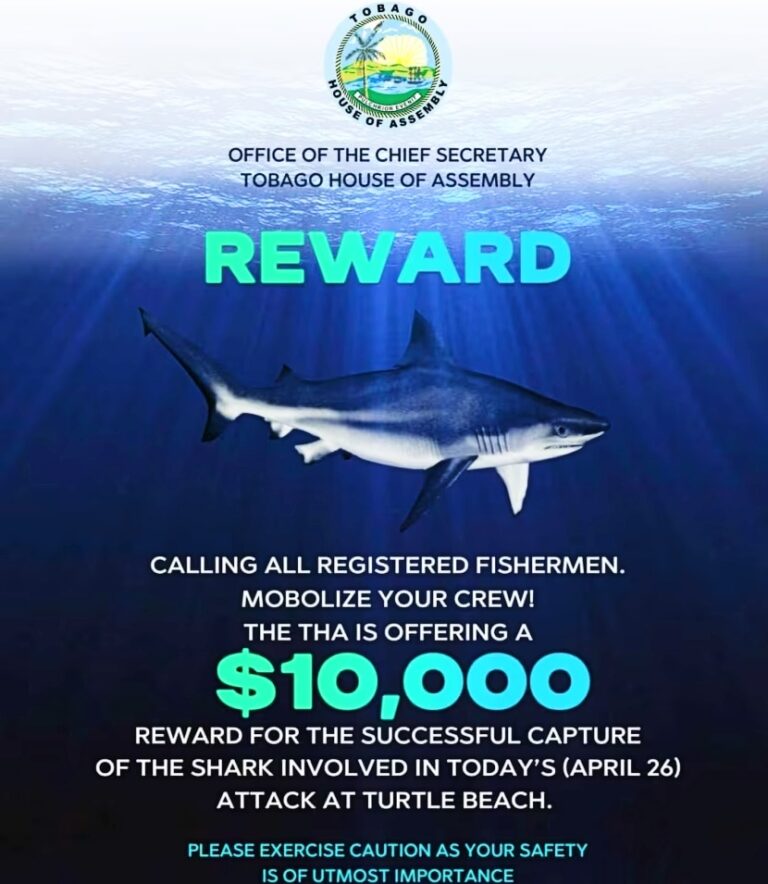A British tourist is in intensive care following a serious encounter with a shark in shallow water at Turtle Beach, Tobago. The unusual incident brings further unwelcome publicity for one of the Caribbean’s prime scuba-diving destinations, following the oil spill that was designated a national emergency in early February.
That event had resulted in temporary closure of seven miles of coastline in the south-west of the island but had not affected dive-sites, whereas the shark incident has caused the temporary closure of some 10 beaches further to the west, where a number of the island’s most popular dive-sites are located.
Peter Smith, 64, from Berkhamsted in Hertfordshire, was being treated in Scarborough General Hospital’s intensive care unit for serious injuries to his left hand and forearm, as well as to his left thigh and stomach. He was described as being in “critical but stable” condition.
Smith had been on holiday with his wife and friends at the Starfish Hotel on Turtle Beach in Great Courland Bay, and was due to fly home later that day, 26 April. He was in waist-high water only about 10m off the resort beach when the incident occurred at around 9.15am.
Few people had been around at the time but other bathers helped Smith by getting him ashore, applying tourniquets and raising the alarm, while others reportedly tried to fend off the shark. According to eyewitnesses, at one point the animal had temporarily beached itself before being drawn back into the sea by the tide.
The shark was also reported to have injured another bather, though wounds to his stomach were reported to have been limited to scratches.
Bounty withdrawn
The Coast Guard began monitoring the area, and the Tobago House of Assembly (THA) initially offered a $10,000 cash reward for any fishing-crew that caught what was described as a bull shark. This offer was later withdrawn, after critics had claimed that a bounty would serve only to promote a killing spree of any shark on the part of those seeking the reward.
“There is no shark threat in Tobago – it is an accident,” marine biologist Aljoscha Wothke told the Trinidad & Tobago Guardian. “If they are going for hunting out sharks in Tobago, they will destroy the ecosystem. It’s not done according to best scientific knowledge.”
While acknowledging that Tobago was within bull sharks’ range, Wothke and other experts also cast doubt on how the shark had been positively identified in the circumstances.
Tobago has not previously been associated with bull sharks or shark “attacks”, though one non-fatal incident in 2004 had been attributed to the species. The recent incident coincided with excavation of a nearby turtle-nesting site, with local commentators suggesting that there might be a connection.
Reported sightings of the shark later that day at Buccoo, No Man’s Land and Grafton led to temporary closure of Buccoo Reef Marine Park to all recreational activities, including scuba diving and snorkelling. Warnings were issued about entering the sea in the vicinity of Plymouth, Courland Bay, Black Rock, Mt Irvine, Buccoo, Pigeon Point and Store Bay.
Gulfstream fall-out
The abandoned Gulfstream barge that capsized on Tobago’s south coast in February shed much of the 35,000 barrels of fuel oil it was carrying, and the spillage ended up drifting over a wide area of the southern Caribbean – but the good news for scuba divers, whether in Tobago or the other islands reached by the slick, Grenada and Bonaire, was that it did not appear to have affected any regular dive-sites.

Although the spill damaged a coral reef in the south of Tobago, no ill-effects were reported in the areas covering the island’s 50 or so established diving locations.
Grenada, 145km away, was later reported to be at risk as the oil spread north-west, though in the event there were no reports of its own celebrated dive-sites being affected.
Then it turned out that the slick had moved west again to single out the east coast of Bonaire – another prime diving island but lying 830km from Tobago.
Bonaire’s east coast is rarely dived, though there had been concerns for its mangrove areas, but clean-up operations were reportedly successful. The west side of the island, where Bonaire’s many shore-diving sites are concentrated, remained unaffected by the spillage, according to the authorities.
The Panama-registered barge had been abandoned off Tobago by a tugboat that nearly three months later has yet to be traced.
Also on Divernet: South Tobago – River, Sea & Ocean, Driving North of Tobago, Cocaine washes up near Tobago oil-wreck, Does fewer shark bites mean fewer sharks?


A ridiculous challenge, how on earth is anyone going to know which shark is responsible, plus the shark is doing what it naturally does
so now there is a frenzied slaughter
of sharks in order to claim the Ransome
who is the more intelligent man or fish ?